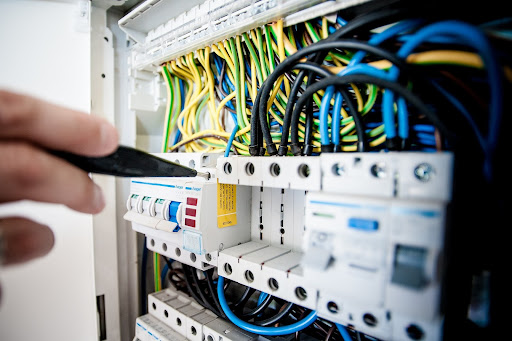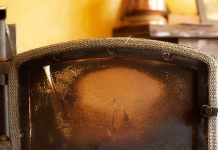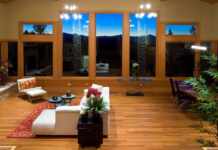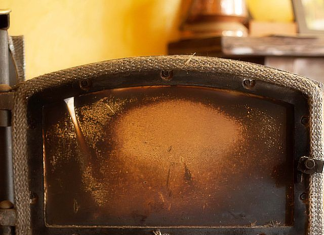Electricity is essential to modern living, powering everything from home appliances to phones and laptops. As we go about our daily lives, we often take the electrical systems that power our homes for granted.
However, with this convenience comes the potential for danger. Electrical hazards can cause severe injuries and even death, making it crucial to understand and avoid them.
So, to help you secure your home from potential hazards, we’ll discuss ten common electrical hazards in homes and how to avoid them. By understanding and implementing safety measures, you can protect yourself, your family, and your home from electrical hazards.
-
Content Summary
Faulty Wiring
Faulty wiring is one of the most common electrical hazards in homes, and it can lead to serious accidents such as electrical shocks, fires, and even electrocution.
Signs of faulty wiring can include flickering lights, outlets that don’t work, and burning smells from outlets or appliances.
- How to Avoid
To avoid this hazard, it’s crucial to have a professional electrician inspect your wiring regularly and replace any damaged or outdated wiring. It’s also important to never attempt to fix faulty wiring yourself, as this can lead to even more hazards and potentially deadly accidents.
-
Overloaded Circuits
Overloaded circuits occur when too many electrical devices are plugged into a single outlet or circuit. This can cause the wiring to overheat, leading to potential electrical fires.
Moreover, this is a common cause of electrical fires in homes, and it’s essential to be mindful of the number of devices you have plugged in at any given time.
- How to Avoid
Make sure to spread out electrical devices throughout your home and use surge protectors to avoid the hazard. It’s also important to never use damaged or frayed cords, as they can also contribute to overloading circuits and potentially cause fires.
-
Outdated Electrical Panels
Outdated electrical panels can seriously harm your home’s electrical system.
If your home was built several decades ago, it might still have an outdated electrical panel that isn’t equipped to handle the power demands of modern appliances and electronics. This can lead to overloaded circuits, electrical fires, and other safety hazards.
- How to Avoid
If your wiring or electrical panels are over 20 years old, a licensed electrician should inspect them properly to ensure they are up to date and can handle your home’s power needs.
Moreover, upgrading your electrical panel may be necessary to ensure your safety and prevent potential hazards.
-
Water & Electricity
Water and electricity are a dangerous combination, and it’s essential to be mindful of this whenever you’re using electrical devices around water.
Water can conduct electricity, meaning using electrical devices near water can lead to potentially deadly electrical shocks. This includes using electrical devices in bathrooms, kitchens, and outdoor areas with water sources.
- How to Avoid
It’s essential to keep electrical devices away from water sources and never use them with wet hands or feet. Installing Ground Fault Circuit Interrupters (GFCIs) in areas where water and electricity may mix is also vital.
-
Overhead Power Lines
Overhead power lines can pose a hazard if they’re located near your home. Strong winds or storms can cause it to break and fall on your house, causing a fire.
- How to Avoid
Make sure to keep trees and other objects away from these lines to avoid any electrical shocks or fires. This will help protect your home and property.
-
Flammable Materials
Flammable materials such as paper, fabrics, and chemicals can pose a significant hazard around electrical devices. These materials can easily catch fire if they come into contact with heat or electrical sparks.
- How to Avoid
Always keep flammable materials away from electrical devices and store them properly in fire-safe containers. Keep a fire extinguisher nearby if any accidents happen.
-
Improper Extension Cord Usage
Improper extension cord usage is another common electrical hazard in homes. Extension cords are meant to be temporary solutions for providing power to electrical devices that are too far away from an outlet.
However, many people use extension cords as permanent solutions or connect multiple cords together, which can lead to overheating and potential electrical fires.
- How to Avoid
To avoid this hazard, it’s important only to use extension cords as temporary solutions and never to connect multiple cords together. It’s essential to use extension cords only for temporary solutions and never as a permanent fixture.
However, if you need an extension cord, ensure it’s rated for the wattage of the devices you’ll be using and in good condition without any signs of damage or wear. You must also avoid running cords under carpets or furniture.
-
Covered Electrical Cords & Wires
Covered electrical cords and wires can pose a significant hazard if not properly managed. These, paired with rugs, furniture, or other objects, can lead to overheating, which can cause electrical fires.
- How to Avoid
Ensure the cords and wires are kept in open areas where air can circulate freely and aren’t covered by any objects.
-
Extinguishing Electrical Fires with Water
Using water to extinguish an electrical fire is extremely dangerous and should be avoided. Water conducts electricity, which means that using it to put out an electrical fire can lead to electrocution and other serious injuries.
- How to Avoid
In this case, you must use a Class C fire extinguisher designed specifically for electrical fires. It’s also crucial to shut off the power source to the affected area before attempting to extinguish the fire.
-
Electrical Appliances
Electrical appliances can pose a significant hazard if not used properly. Old, damaged, or unused appliances can cause electrical fires, shocks, and other accidents.
- How to Avoid
It’s essential always to follow the manufacturer’s instructions when using electrical appliances, including not overloading circuits, ensuring cords aren’t frayed or damaged, and never leaving appliances unattended while in use.
Furthermore, get a professional to inspect and replace outdated or out-of-order appliances. By being mindful of these hazards, you can help ensure your devices are used safely and effectively.
-
DIY Electrical Work
Attempting to do electrical work yourself can be extremely dangerous and should be avoided. Also, improper wiring, overloaded circuits, and other hazards can lead to electrical fires, shocks, and other accidents.
- How to Avoid
It’s important always to hire a professional electrician to perform any electrical work in your home to avoid any hazards.
-
Light Bulbs
Believe it or not, light bulbs can also pose an electrical hazard. Using a light bulb with a wattage that’s too high for the fixture can cause the wiring to overheat and potentially start a fire.
- How to Avoid
To avoid this, make sure to always use light bulbs with the correct wattage for the fixture.
Conclusion
Many electrical hazards can exist in your home. But the important part is to be aware of these hazards and take steps to prevent them.
Regularly inspecting your electrical systems, hiring licensed professionals for any electrical work, and avoiding overloading circuits are all critical steps you can take to keep your home safe.
Moreover, by taking our electrical safety precautions, you are ensuring a safe environment in your home for everyone.









